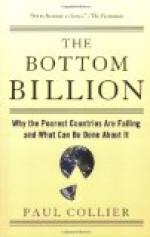BROWNING, ROBERT. Born at Camberwell, Eng., May
7, 1812; died at Venice,
Italy, Dec. 12, 1889. Educated at
home and at London University; well
trained in music. Travel in Russia
1833; considered diplomatic career;
trip to Italy 1838; married Elizabeth
Barrett 1846, and during her
life time resided chiefly at Florence,
Italy. After her death in 1861,
he lived in London and Venice. Among
his works are “Pauline,”
“Paracelsus,” “Strafford,”
“Sordello,” “A Blot in the ’Scutcheon,”
“Colombe’s Birthday,”
“Dramatis Personae,” “A Soul’s
Tragedy,” “Luna,”
“Men and Women,” “The
Ring and the Book,” “Fifine at the Fair,”
“The
Inn-Album,” “Dramatic Idyls,”
and “Asolando.” Man, Bird, and God;
Pippa’s Song; Prospice; Rabbi Ben
Ezra.
BURNS, ROBERT. Born at Alloway, near Ayr, Scotland,
Jan. 25, 1759; died
at Dumfries, Scotland, July 21, 1796.
Received little education;
drudgery on a farm at Mt. Oliphant
1766-77; on a farm at Lochlea
1777-84, during which time there was a
period of loose living and bad
companionship; at the death of his father
he and his brother Gilbert
rented Mossgiel farm near Mauchline, where
many of his best poems were
written; winter of 1786-7 he visited Edinburgh,
and was received into
the best society; winter of 1787-8 revisited
Edinburgh but rather
coolly received by Edinburgh society;
1788 married Jean Armour, by
whom he had previously had several children.
Took farm at Ellisland
1788; became an excise officer 1789.
Removed to Dumfries 1791; later
years characterized by depression and
poverty. Some of his best-known
poems are “The Holy Fair,”
“The Cotter’s Saturday Night,” and
“Tam
O’Shanter”; wrote many of
the most popular songs in the English
language. A Man’s a Man for A’
That; Borrowing Trouble; The Gift.
BYRON, LORD (George Gordon Byron). Born at London,
Jan. 22, 1788; died
at Missolonghi, Greece, Apr. 19, 1824,
and buried in parish church at
Hucknell, near Newstead. Born with
a deformed foot; much petted as a
child; inherited title and estate at death
of his granduncle, William,
fifth Lord Byron, 1798. Studied at
Harrow and at Cambridge University,
receiving M.A. degree 1808. Traveled
in Portugal, Spain, Greece, and
Turkey 1809-11. In 1815 married Anna
Milbanke, who left him 1816. In
1816 met Miss Clairmont at Geneva, who
bore him an illegitimate
daughter, Allegra, 1817; in 1819 met Teresa,
Countess Guiccioli, at
Venice, and remained with her during his
stay in Italy. Joined the
Greek insurgents 1823, and died of a fever
in their cause of freedom
from the Turks. Among his works are
“Hours of Idleness,” “English
Bards and Scotch Reviewers,” “Childe
Harold,” “The Giaour,” “The
Corsair,” “The Prisoner of
Chillon,” “Cain,” “Manfred,”
and “Don
Juan.” Serenity.




